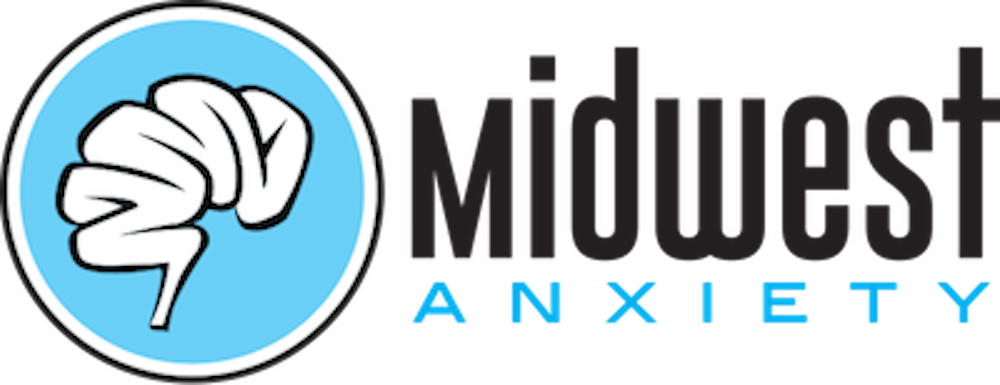Barf!
Barf. The fear of throwing up is one of the most common phobias. Managing the fear of vomiting can be difficult because just the thought of vomiting can make people feel queasy. In turn, it is difficult for anxious people to determine if this queasy feeling is a result of going to vomit or because of the worry about getting sick.
During this class, we will discuss how managing your anxious thoughts, feelings, and behaviors will help you manage the uncertainty of when you will Barf again. We will help you become more confident that you “will be able to handle” barfing.
Presenter
Randy Floyd, LSCSW, Founder, Clinical Level Therapist
Randy is the founder of Midwest Anxiety. He is a Licensed Specialist Clinical Social Worker who is an optimist and passionate about helping people focus on what they can do rather than what they can't do. He believes that every person is born with unique strengths and that over time life's stressors can blur our abilities. Randy believes that building a strong therapeutic relationship and tapping into a person's strengths is the most essential components of the therapeutic experience.
Schedule
7:00pm - 7:10pm: Class Introduction
7:10pm - 7:45pm: Discuss Barf Material
7:45pm - 7:55pm: Questions & Answers
7:55pm - 8:00pm: Follow up after class
Self awareness is the #1 Super skill. Know your thoughts, feelings, & behaviors!
Cognitive Behavioral Therapy (CBT)
Anxiety cycle that fuels fear of getting sick
- Thoughts
- Thoughts are there to try and protect you from getting sick. Create "What if" scenarios.
- Thoughts zone into the threat of getting sick. Exaggerate the likelihood you will get sick.
- When you don't get sick, it was just by chance. Next time will be the time.....
- Feelings
- Experience various physiological sensations such as upset stomach, heart palpitations, sweating, headaches, etc.
- People get confused if the feelings they experience are symptoms of sickness or anxiety. It is easier to attribute feelings to symptoms of sickness.
- Behaviors
- When you get anxious about getting sick you Fight, Flight, or Freeze.
- Generally need reassurance, accommodations, or avoidance to decrease feelings of sickness and uncertainty that you will get sick.
Don't Let Anxiety Trick You!
- Make sure you are medically well. This will give you confidence that what you are experiencing is anxiety and not medical.
- Expect to get anxious, think, and feel like you are going to get sick. Celebrate getting anxious, because that is when the true work happens.
- Get out of the business of asking for reassurance and accommodations.
- Be uncertain and uncomfortable. This will help you build tolerance and skills to anxiety.
- Re-create the symptoms that make you anxious.
- Gradually put yourself in situations where you are presented with potentially getting sick (pictures, videos, etc)
- Don't listen to the "what ifs."
- Don't get overwhelmed by the consequences (people looking at you, etc) of getting sick.
- Think and believe "I can handle it when I get sick."
Podcast
Podcast obtained from ADAA Podcasts.
Survey
Thank you for participating in this class! We are interested in your feedback. We appreciate you taking a three question survey.
Upcoming classes
Questions?
Do you have more questions? We want to listen. Feel free to contact us any time!
Join our Everyone Struggles Group
We believe that Everyone Struggles. Some struggle more than others, but everyone struggles socially and emotionally. It is part of being human! Regardless of your struggle with procrastination, obsession or compulsion, fear or phobia, problematic relationships or communication skills, depression or anxiety, we still believe you have more strengths than struggles. This online group is for anyone interested in gaining useful resources to assist with social and emotional struggles, while also connecting with others who may be going through similar struggles.
The AskMidwestAnxiety Show
At times, we all have those questions, "What happens if....." or "What do I do when...." Regardless of your struggle with parenting, obsession or compulsion, fear or phobia, problematic relationships or communication skills, depression or anxiety, you may have lingering questions on how to handle a situation. That is where we come in. You ask the question and we answer them. Using a Cognitive Behavioral framework, we will use your questions as discussion points.
Resources
Resources are like everything else in today's world. They are always changing and being produced in many different forms. For that reason, we share our resources on our Social Media platforms. To receive the latest and greatest articles, podcasts, and videos make sure you connect with us @midwestanxiety on Facebook, Twitter, Instagram, and YouTube.
Limits and Restrictions:
The materials distributed are provided with the understanding that the author and presenters are not engaged in rendering professional services. This is a psychoeducational class and information in the presentations or group discussions by the presenters, facilitators, or participants should not be considered to be medical, psychological, legal, financial, or spiritual counsel. The presentations and written materials are not intended to provide medical, psychological, legal, financial, or spiritual services or counseling. If expert assistance or counseling is needed, the services of a competent professional should be sought. Any opinions, finding, recommendations or conclusions expressed by the author(s) or speaker(s) do not necessarily reflect the views of Midwest Anxiety, LLC.





